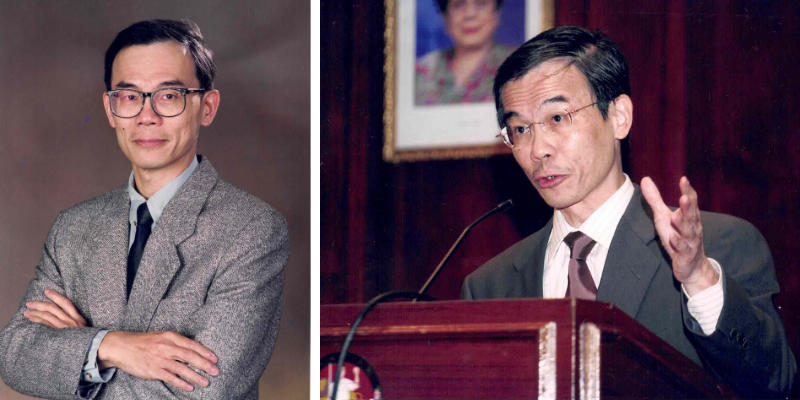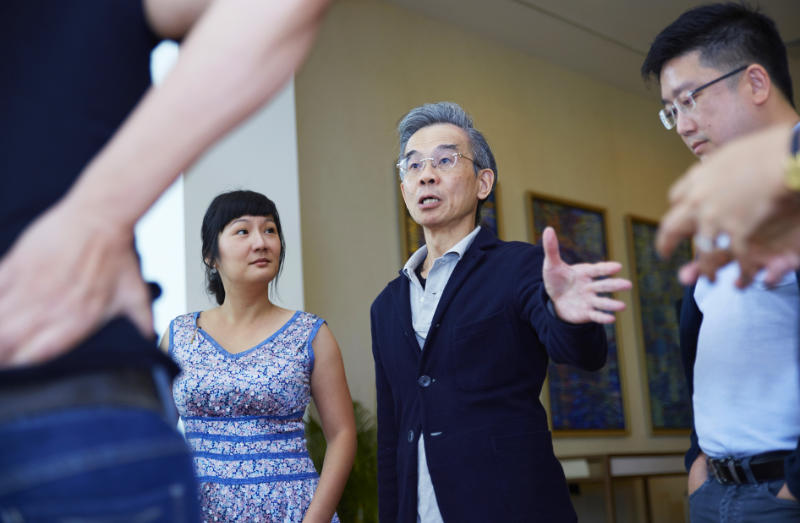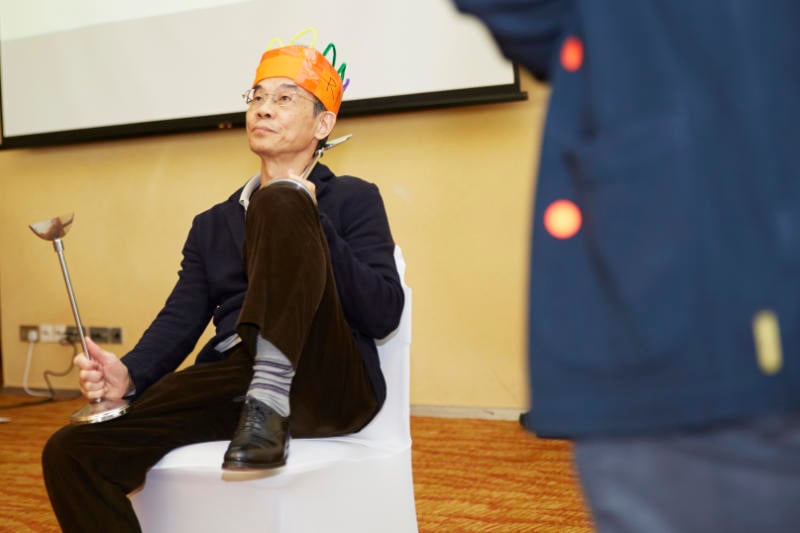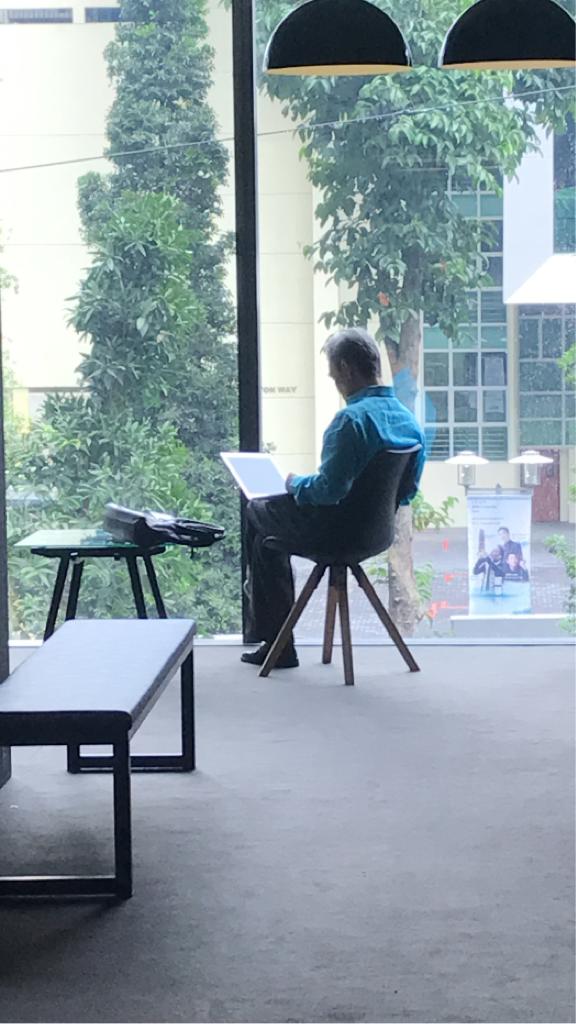
A Giant and a Gentleman: Remembering Tan Yock Lin

Photo: Tan Yock Lin’s family
The news of Yock Lin’s passing reached me shortly after I had arrived in Canada to attend a conference. Still severely jet-lagged, it struck me as somewhat surreal, especially as the initial messages were unsure of the identity of the victim of the horrific accident. Until the news had slowly sunk in later after his identity was confirmed by colleagues and later the press, those initial messages were accompanied by prayers that the rumours were untrue.
I’d just met Yock Lin six months earlier over tea followed by lunch to discuss a monograph that he was working on, on the subject of the taxonomy of equity. Despite having retired when I rejoined the National University of Singapore, Yock Lin’s mind continued to swirl with ideas. Characteristically modest and meticulous, he didn’t send me any drafts because he didn’t think his ideas were sufficiently well thought out. Our discussions were thus limited to broad ideas though, as is also often the case with conversations with Yock Lin, we found ourselves sidetracked by numerous unrelated discussions on topics such as cryptocurrencies and private purpose trusts.
It is well known that Yock Lin’s interests and expertise were broad. It would be no exaggeration to describe him as a polymath: his first degree was in Electrical Engineering (from Imperial College, London) and in addition to his two law degrees from Oxford (the BA in Jurisprudence and the BCL), he also found time to read for a Diploma in Developmental Economics, also at Oxford. But it is less well known how he acquired his equally impressive expertise in numerous unrelated legal subjects. As Professor Tan Cheng Han, the former Dean of the Faculty of Law, remarked, “Over his long and distinguished career, Yock Lin has taught a number of subjects outside his research interests. These included Legal Method, Constitutional Law and Comparative Law. He did this not out of choice but because the law school needed him to plug some gaps. Yock Lin once said that the University asks little of its faculty and so, when it does, we cannot turn the University down. This selflessness and generosity of spirit exemplified what a wonderful person and colleague he was.” As was perhaps inevitable, his intellectual curiosity and conscientiousness transformed these arranged marriages of convenience for the faculty into labours of love for himself as well as his students.
I first encountered Yock Lin as a young law student in two subjects. First, an elective called Conflicts in Family and Property that is no longer offered, which he co-taught with the now Justice Debbie Ong, then a relatively young academic. Second, when he was my tutor for Evidence. He left an instant impression on the whole class. Yock Lin was always sharply dressed and immaculately groomed but more so than his appearance, it was his words that left the deepest impression. Yock Lin spoke in a deep baritone voice and with an Oxford accent that was instantly recognisable. The gravitas in his words though extended well beyond its tone. He spoke and wrote in a beautiful style that may perhaps be best described as baroque. Because of its high density of ideas, it often required careful reflection to fully understand his discourse. If you were able to take down his lectures verbatim, you would realise that he had just narrated a textbook over the semester given his attention to detail! While I imagine few (if any) would claim to understand him fully during a lecture, poring over his words during revision, we inevitably found gems. Unsurprisingly, we were all duly impressed.
He was so prim and proper that when he showed his more playful side, he caught many students off guard. My classmates and I studied Evidence at the time of the Clinton impeachment hearings and Yock Lin, trying to add levity to the class, remarked that he didn’t understand how it was possible have “phone sex”. Unfortunately, his humour was lost on us. Some of us genuinely believed he was so scholarly that he had no capacity to understand such a filthy idea. Yock Lin loved music and, as former Dean Professor Tan Sook Yee recollects, was wont to sing Italian arias, albeit as “a baritone bass aspiring to be a tenor.” When asked why he insisted on singing tenor despite his natural gifts, he explained that all the best arias were written for tenors. In music as in law, Yock Lin never took the easy path.
Although it is difficult to imagine Yock Lin ever having been anything other than a law professor, this was hardly foreordained. While Yock Lin had been sent on an EDB scholarship to study for a Diploma in Economics, financial difficulties nearly derailed his studies. We had Dr Edward Olleson, then Merton’s Tutor for Graduates, to thank for arranging support that enabled Yock Lin to complete the diploma. Perhaps more importantly, Yock Lin “so impressed Dr Olleson that, when he later expressed the wish to read for the FHS Jurisprudence, Dr Olleson supported him warmly and I offered him a place as a Senior Status person,” Sir Jack Beatson recalls. Yock Lin completed his first law degree in time for the Faculty of Law’s recruitment drive following the Jayakumar-Chin Report of 1981. He applied for a job and was “interviewed” by then Dean Professor Tan Sook Yee, the immediately succeeding Dean Emeritus Professor Chin Tet Yung, and perhaps one other, “over an Indonesian lunch at the Apollo Hotel Havelock Road and the rest is history!”, Professor Tan recollects. A seminar was arranged in which, according to Professor Tan, Yock Lin left everyone flummoxed but impressed. Former students of his will take heart that the effect he had on them was shared by faculty. This, of course, was characteristic of the man: when I co-taught with Yock Lin at the beginning of my academic career, I grew apprehensive that I couldn’t adequately explain one of his ideas that he’d presented during his lecture to my students over tutorials because I didn’t quite understand it. Afraid to confess my inadequacies to Yock Lin, I sought clarification from other senior colleagues to little avail. Fortunately, my students were probably even more confounded than I and thus never pressed for any clarification from me. I thus survived co-teaching with Yock Lin by the skin of my teeth though I must confess that I am none the wiser today. Despite often leaving lesser mortals bewildered, there is no doubt that Yock Lin is one of the sharpest legal minds in Singapore. The experience of my colleague, Professor Lin Lin, probably best illustrates the genius of the man, “Although we are not in the same research area, Yock Lin attended my working paper presentation at the Centre for Banking & Finance Law shortly after I joined NUS. He asked me questions and gave me very constructive advice during my talk. I revised my paper according to his suggestions. That paper is still my most cited paper, and is the theoretical basis for the book I published later.”
Yock Lin joined the law school as a young academic at around the same time as another Singaporean legal giant who went on to become a Professor and Judge of Appeal, Justice Andrew Phang. They were both subsequently sponsored by the law school for their postgraduate law education on opposite sides of the Atlantic. Justice Phang pursued an LLM and an SJD at Harvard whilst Yock Lin plumped for his alma mater: Merton, Oxford. He completed his BCL but his plans for a DPhil met with disappointment when Sir Guenter Treitel declined to supervise him. He was taken by Emeritus Professor Francis Reynolds, who had begun to visit Singapore in the 1980s, to see Sir Guenter at All Souls College. As Professor Reynolds recollects, “Slightly to my surprise Guenter, after talking to him alone, said he could not help.” This happened, of course, at a time when DPhils were much rarer than they are today.
Nevertheless, the episode hit him hard and he became withdrawn for a period. Though it was cut short, Yock Lin’s postgraduate Oxford adventures nonetheless blazed a path for many future young Singaporean scholars to read the BCL at Oxford. Initially, these (eg Soh Kee Bun, currently senior state counsel) would gravitate towards Yock Lin’s alma mater, Merton, before Professor Reynolds’ influence led the centre of gravity to shift towards Worcester for students sponsored by the National University of Singapore, though many others in later years (e.g. my classmates, Professor Burton Ong and Professor Kelry Loi, and now Jeremiah Lau) did eventually find their way back to Merton for their postgraduate studies. Nor did the lack of a DPhil hinder Yock Lin’s eventual academic progression. He made full professor in 2000 (when full professorships were less common than they are today) and was made the inaugural Geoffrey Wilson Bartholomew Professor a decade later. With his later and indisputable success, his early stumble in Oxford takes on an entirely different complexion: it is an episode that reveals less about failure and more about the importance of having the capacity to overcome adversity and rejection.
Yock Lin’s influence on the law, particularly Singapore law, is immeasurable. He has contributed to more law reform reports than any one single individual in Singapore, whether from academia, bar, or bench. He was the first Singaporean academic to publish with the prestigious Law Quarterly Review, on various issues but perhaps most memorably on the difficult subject of assignments of choses in action, again blazing a trail for younger academics to follow. But perhaps even more so than his erudition, Yock Lin will be remembered for his generosity and humility. I recall missing an Evidence tutorial due to illness. To my shock and horror (despite being the overconfident fool that I was, Yock Lin was one of a handful of tutors who succeeded in terrifying me to prepare for tutorials), he arranged a one-on-one make up tutorial that lasted longer than a normal tutorial. When I first joined academia at the National University of Singapore, Yock Lin welcomed me warmly to his then new project to teach Equity and Trusts in an entirely different way, pioneering sectional teaching in Singapore. I must at this point vigorously object to Yock Lin’s account of this project in the Singapore Journal of Legal Studies in his article, “Making and Remaking Equity and Trusts in the Law School” [2017] SJLS 270, where he credited Emeritus Professor Adrian Briggs, Professor Gerard MacCormack, and myself for the success of the new course. This accounting of credit is, of course, incredulous: neither Professor Briggs nor Professor MacCormack were trust lawyers and both, as visitors, only agreed to teach on the course as tutors on short notice, and I was but a fresh academic. It was not possible for us to have had much to do with the course’s success, especially since Yock Lin was both course convenor and carried all the lectures. Yock Lin had, with characteristic humility, entirely omitted to mention the contribution of the maestro of the entire project: himself!
It is evident that CJ Koh Professor Hans Tjio’s yearning for Yock Lin to take some credit for his achievements, expressed when nominating Yock Lin for the Geoffrey Wilson Bartholomew Professorship, never came to pass. In Professor Tjio’s words:
“Yock Lin has done a lot in academia, and yet he will say that he is still slowly finding his feet. This after traversing through the laws of evidence, criminal procedure, conflict of laws, the legal profession and now trust law. We all know about the jack of all trades, but here we have one who is also a master of them all. One who has written copiously, and produced learned books in at least five disparate areas. He has masked all of this with a modesty that is extremely wearing, and, hopefully, after this nomination, we shall see less of it.”
When I left the National University of Singapore shortly thereafter to join the University of Hong Kong (for personal reasons), I felt guilty “abandoning” Yock Lin’s Equity and Trusts project, especially since Professor Briggs and Professor MacCormack were merely visitors, as he had to train an entirely new team of young academics. Yet, he never held it against me. Years later, when I was with the Singapore Management University and sought his counsel over the direction of my career, he was as ever generous with his time, going so far as to plot a plan for my return to the National University of Singapore. Despite my gratitude to him for his advice, I never actually consciously acted on his plan but yet here I am, back at my alma mater. Clearly, Yock Lin knew better than I what lay in my future.
I trust that my experience is not unique. Generations of lawyers, judges, and academics in Singapore have seen further because Yock Lin lifted us up upon his shoulders. As Emeritus Professor Jeffrey Pinsler, who succeeded Yock Lin to the Geoffrey Wilson Bartholomew Professorship, remarked, “Apart from being a formidable scholar, he was a man of great integrity and a shining example of commitment to his work and to the academic and personal interests of those who were fortunate enough to cross his path.” Emeritus Professor Michael Bridge, who succeeded Professor Pinsler to the same chair and who is the leading personal property law scholar of our time, observed, “Yock Lin mastered a remarkable range of demanding subjects in his career and never followed the easy course. His treatise on Personal Property Law performs an essential role in gathering together disparate materials for the benefit of Singapore students, practitioners and courts.” His kindness and consideration struck all who were fortunate enough to cross his path, whatever their rank or background. Professor Bill Swadling recalled his visit to the National University of Singapore to co-teach Personal Property with Yock Lin, “He was so kind to me, going so far as to pick me up from the airport, settle me into my accommodation, and take me to dinner. A true gentleman in every sense of the word.” When Professor Li Mei Qin first joined the National University of Singapore in 1992 from China, Yock Lin left a deep impression on her by helping her transition to teaching in Singapore when she very much felt like a fish out of water. Professor Li recalled, “He is so kind and helpful, always thinking about others. He carefully guided me in terms of how to manage the expectations of Singaporean students and taught me how to teach comparative law. He would help me with all the administrative details involved with coursework.” Yock Lin never allowed her or her husband to pay for meals, invariably at a Japanese restaurant as he was fond of Japanese food, whenever they met socially, insisting that as a bachelor, he had less financial commitments (which was not true). Similarly, Jeremiah Lau, one of the faculty’s young Sheridan Fellows, recalled, “I co-taught with him in 2018 and received much of his kindness and generosity. I miss him dearly.” Yock Lin is also fondly remembered by the non-teaching staff. Despite his tendency to rack up large fines for overdue library books (in the hundreds of dollars at any one time according to his telling), Yock Lin was “much loved and respected by all Law Library staff.” As Ms Lee Su-Lin, Principal Librarian at the CJ Koh Law Library, observed, “He was a true gentleman – humble, kind, caring and warm-hearted. We will always remember his smile.” His generosity and humility also extended beyond the law school. Professor Lin Lin, who attended the same church as Yock Lin, recounted to me, “He was so generous to everyone, dispensing free legal advice to all who needed it.”
Although the timing of Yock Lin’s passing took all of us by surprise, and we remain shocked by the manner in which he left us, we should take comfort that he spent the time just before his passing in a most personally fulfilling way. He undertook a remarkably long sojourn across multiple countries before he passed to attend two weddings, one in Santorini (for a niece) and the other in Napa Valley (for a nephew), where his extended family had gathered. At Santorini, he even gave away the bride, which would have meant a lot to Yock Lin as a devoted family man. In between the two weddings, Yock Lin, a devout Christian, also finally had the opportunity to visit Israel, the holy land, and he so enjoyed himself that he was planning a second trip in 2024. Despite his sudden and untimely passing, I would like to think that Yock Lin managed to find personal contentment in his final days.

At the NUS Law Retreat in 2016
Photo: Sean Lee

At the NUS Law Retreat in 2016
Photo: Sean Lee

Photo: Samuel Ng
Kelvin FK Low
Professor
Faculty of Law
National University of Singapore






